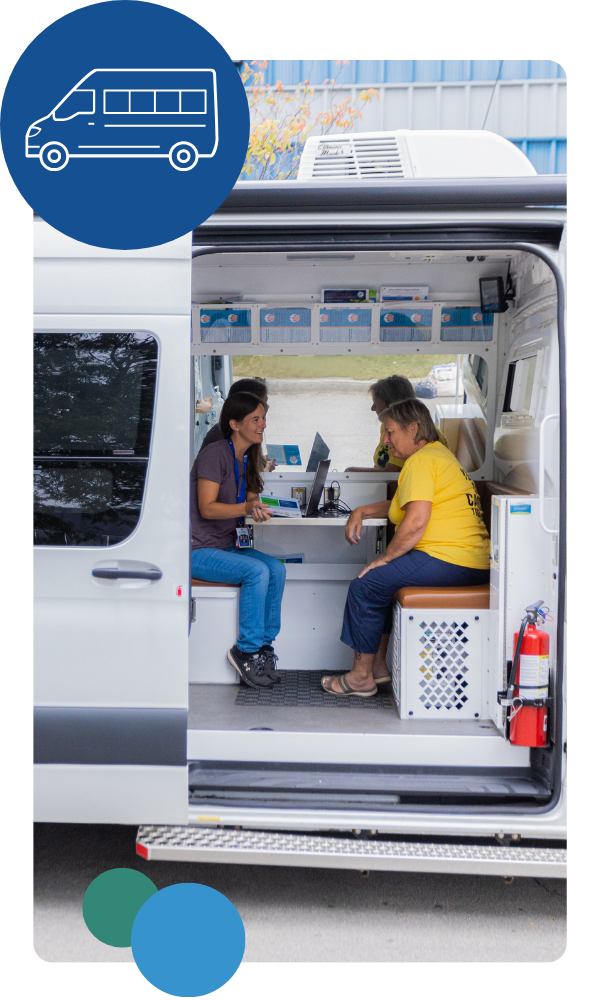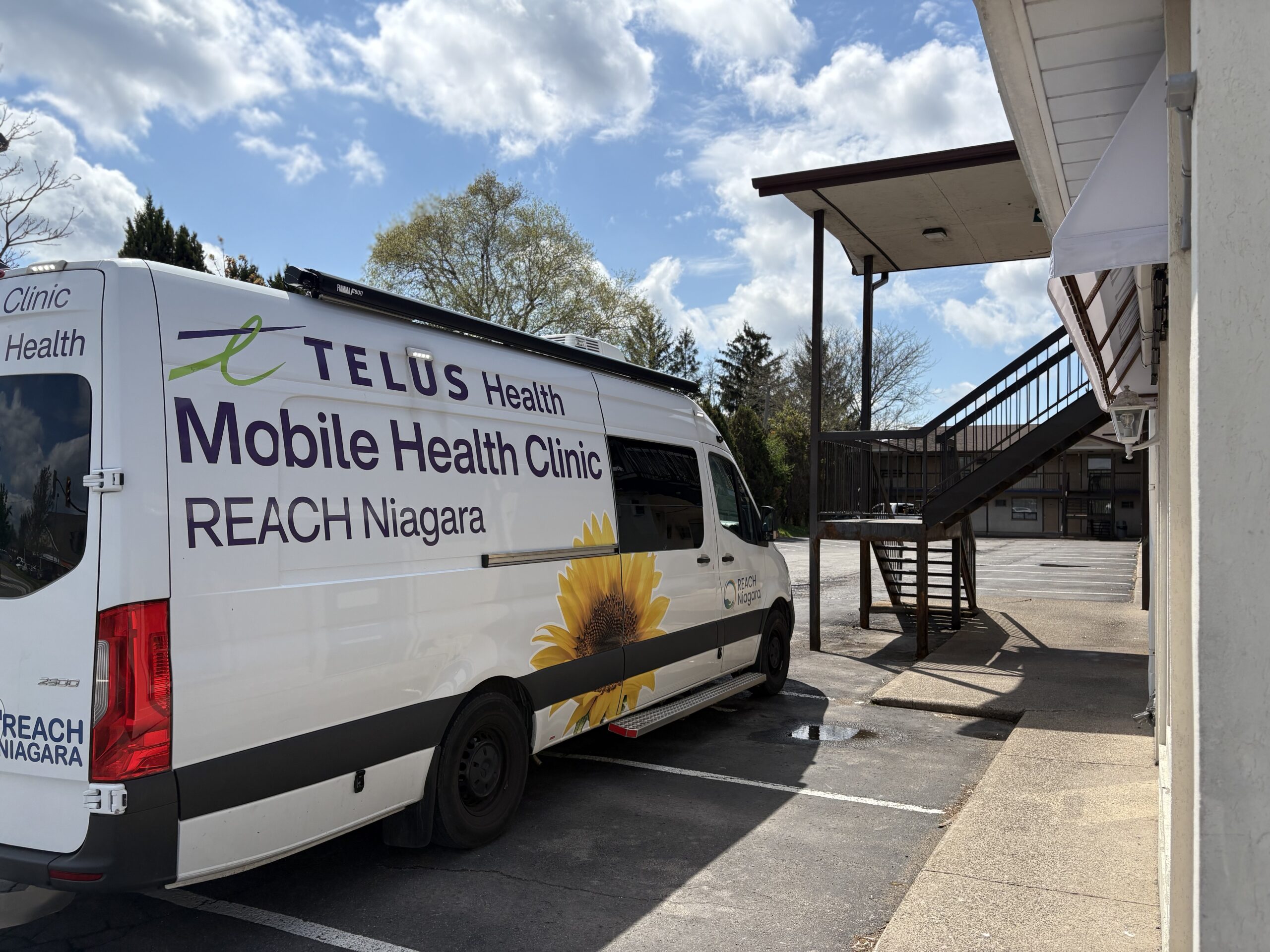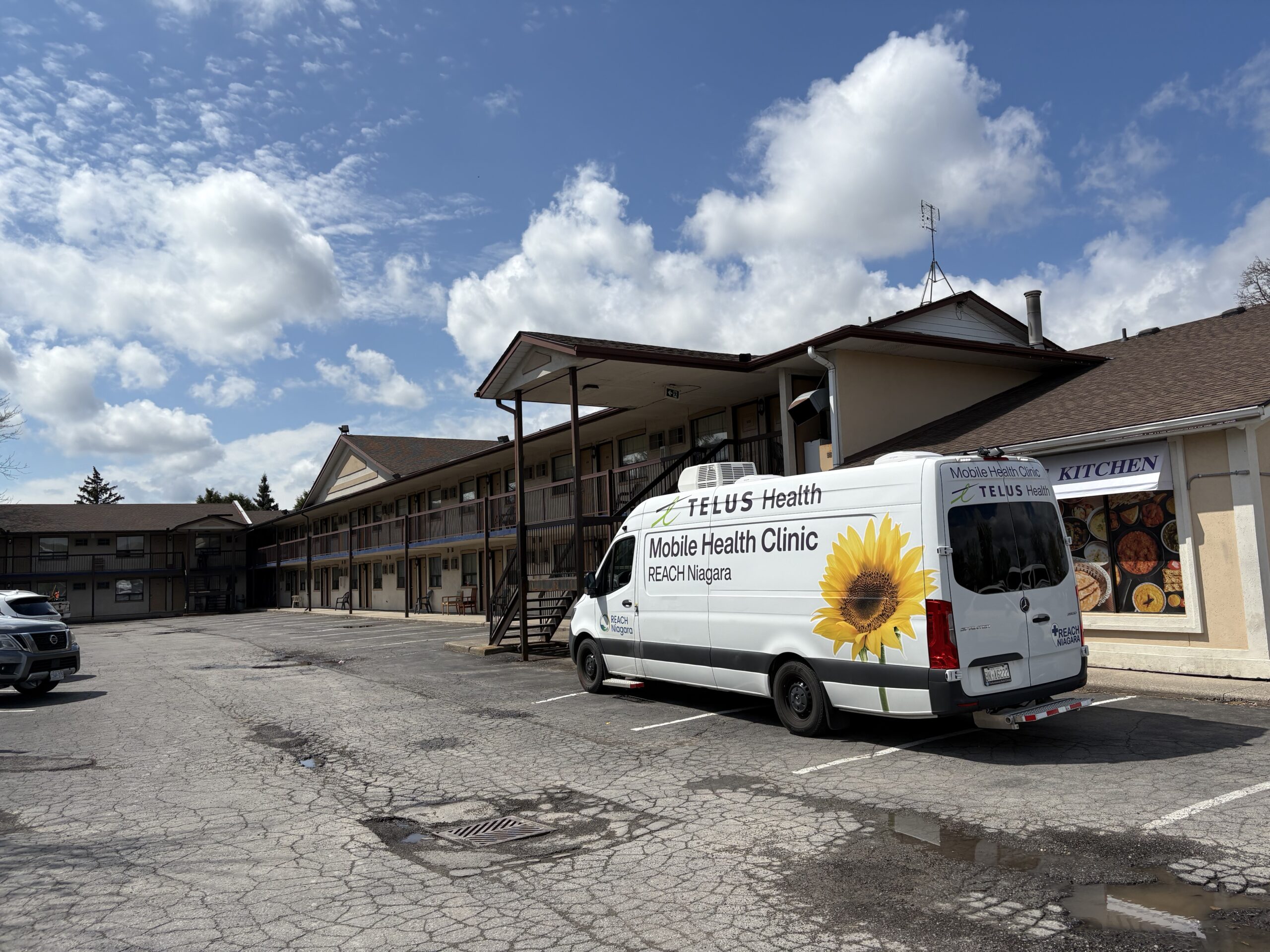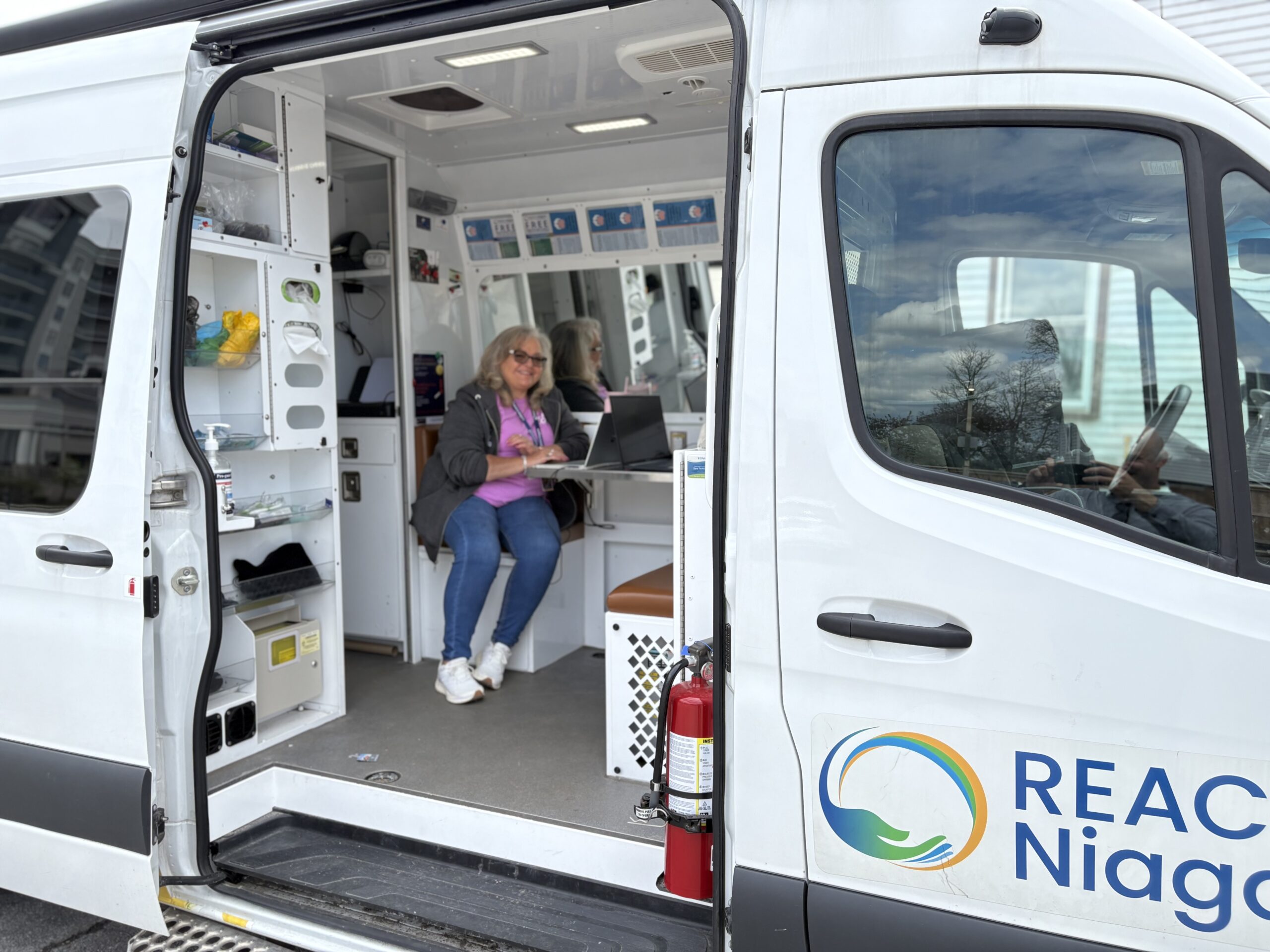Telus Health Mobile Clinic & Partnered Indoor Clinics

Overview
REACH Niagara’s weekly network of indoor clinics are vital to our clinical and organizational operations. These clinics provide safe, secure opportunities for the equity deserving population to access healthcare and support services through REACH directly within local shelters, support centres and other community partnered organizations. Many of our Indoor Clinics feature a Peer Support worker. These staff members can relate to clients through shared lived experiences. A key connection point that can assist in building trusting relationships and getting connected to support services.
Our clinic team also operates out of the TELUS Health mobile health clinic. Our mobile is equipped with cutting-edge technology to support its care team in providing high-quality, immediate care to clients in need.
Other services offered include:
- Primary Care
- Counselling Support
- Select Form Support (ODSP, WSIB, Special Diet Allowance etc.)
- Wound Care
Who is the program for?
Equity deserving populations that have barriers accessing ‘traditional’ healthcare services, this includes, individuals and families who are:
- Are or are at risk of experiencing homelessness
- Are or are at risk of experiencing food insecurity
- Are experiencing (including families) gender-based violence
- Struggle with substance use
- Are exiting the justice system
- Have lost or had identification stolen
- Recently immigrated to Canada
- Have challenges reading or understanding english
- Are experiencing insufficient employment
- Recently housed but are still in need of continuity of care
How can you access the program?
We have an extensive schedule of clinics across the Niagara region that operate at regularly scheduled times and locations. Our clinics operate on triage prioritized first-come, first-serve basis delivering care to strategic high need areas. We provide care often directly in our client’s time of need, right here, right now. No appointment, identification (including health card), or referral necessary.
What are the benefits?
With a clinic on wheels and over 20 locations, we can break down barriers to receiving care, such as access to transportation, by meeting people where they’re at. Other benefits include:
- Feeling safe when care is provided in a setting our clients are comfortable in.
- Providing care in higher-risk locations, we can reduce the number of calls to emergency services.
- Building relationships with traditionally underserved communities can help build trust and improve health outcomes.
- Offering multiple services in a centralized location














